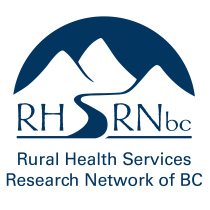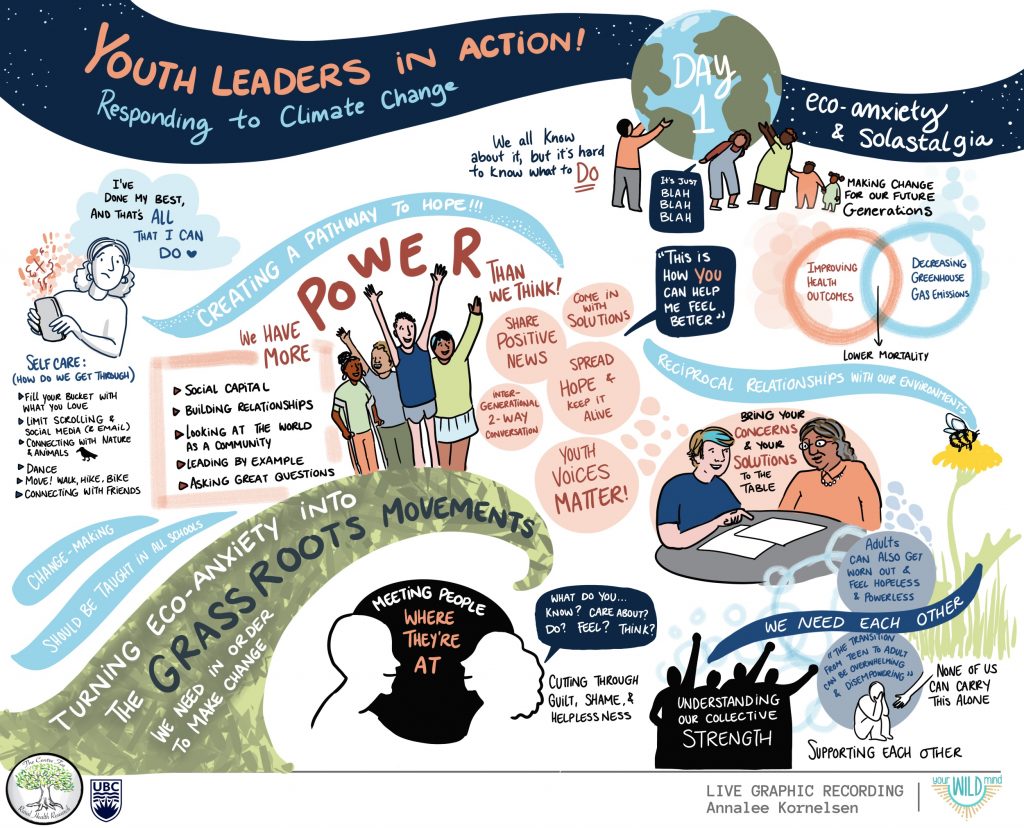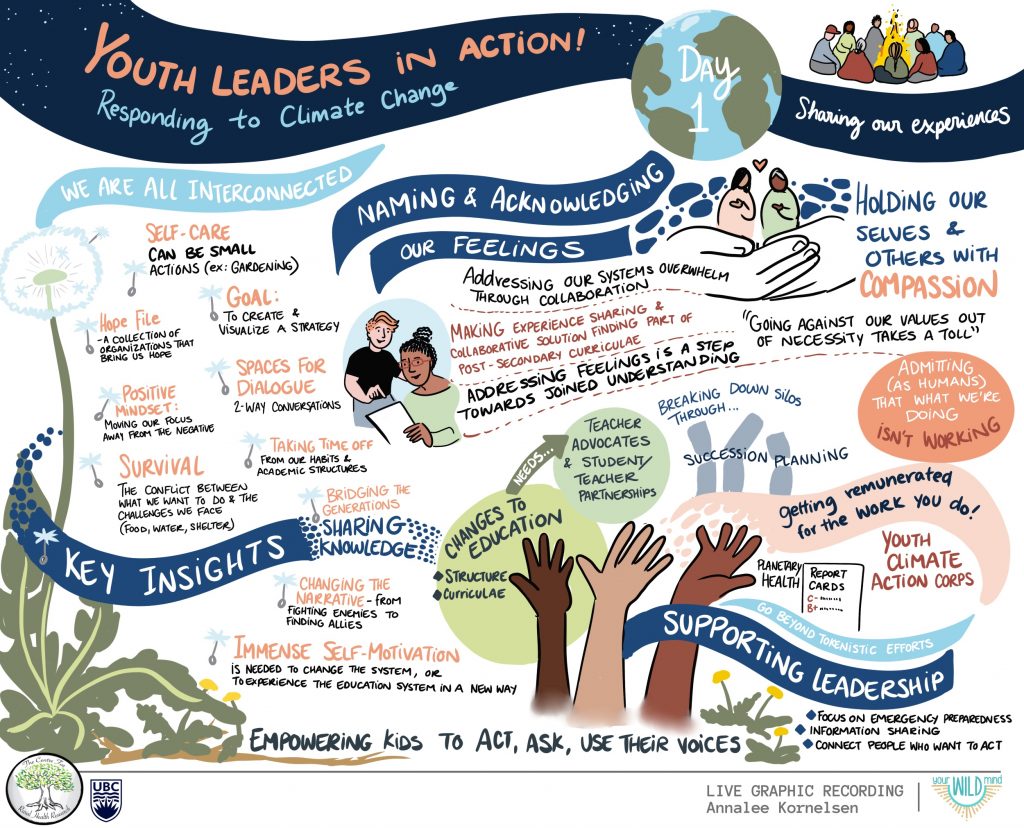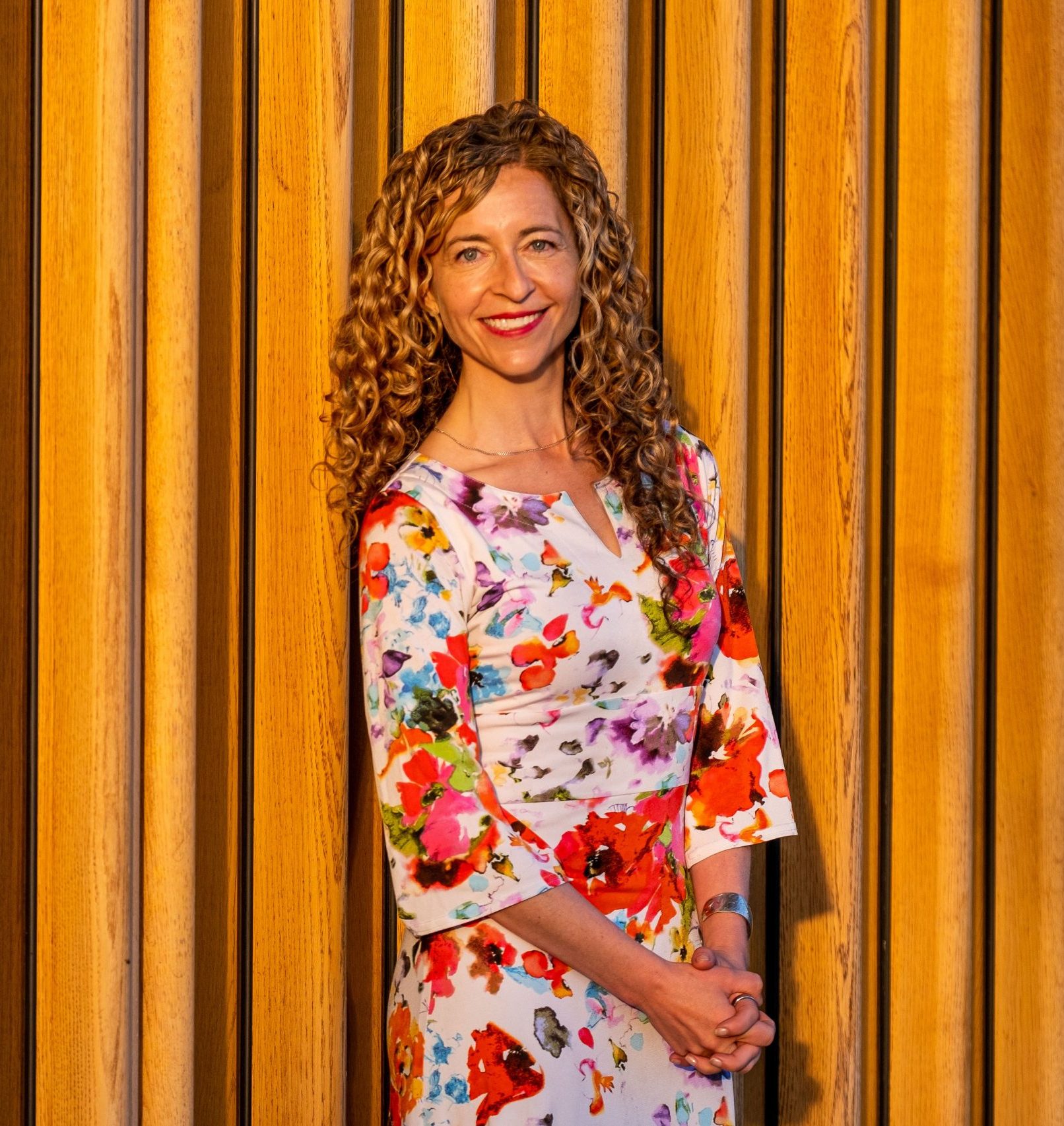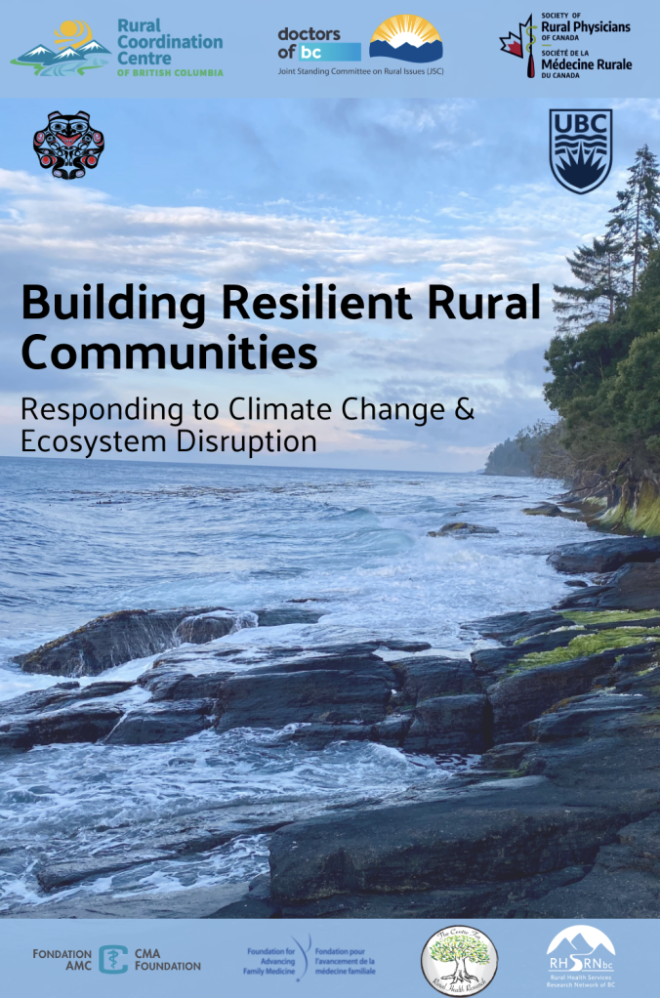In case you missed joining the symposium on May 15 & 16, 2024, read the main takeaways from our conversations below!

The Rural Health Services Research Network of BC (RHSRNbc) is part of the UBC Vancouver campus, which is found on the traditional and unceded territories of the xʷməθkʷəy̓əm (Musqueam) First Nation. We are grateful for the opportunity to live, work, and play on these lands, and encourage our readers to acknowledge the territories that they reside on today.
From the opening words to the closing conversation, it became abundantly clear how eco-anxiety and solastalgia are shared participant experiences. Finding common ground in this shared experience helps create an initial sense of community, which then makes it possible to sow fruitful seeds for future actions.
This recognition of our collective eco-anxiety then led to the work done by grassroots organizations. Though climate change and ecosystem disruption are large-scale and complex problems, working from a bottom-up grassroots approach allows individual actions to translate to collective action!
Over both days, we were joined by graphic recorder Annalee Kornelsen (from Your Wild Mind), who expertly captured the ideas and conversations into graphic images full of bright colours and energy. Feel free to scroll through the images on the right, and click on each one to expand the view!

Click on each heading below to learn more about the specific themes and actions that came out of the symposium!
Day 1 – Eco-Anxiety & Solastalgia
To start the symposium, we asked ourselves:
“What are the ways that eco-anxiety expresses itself in our lives?“
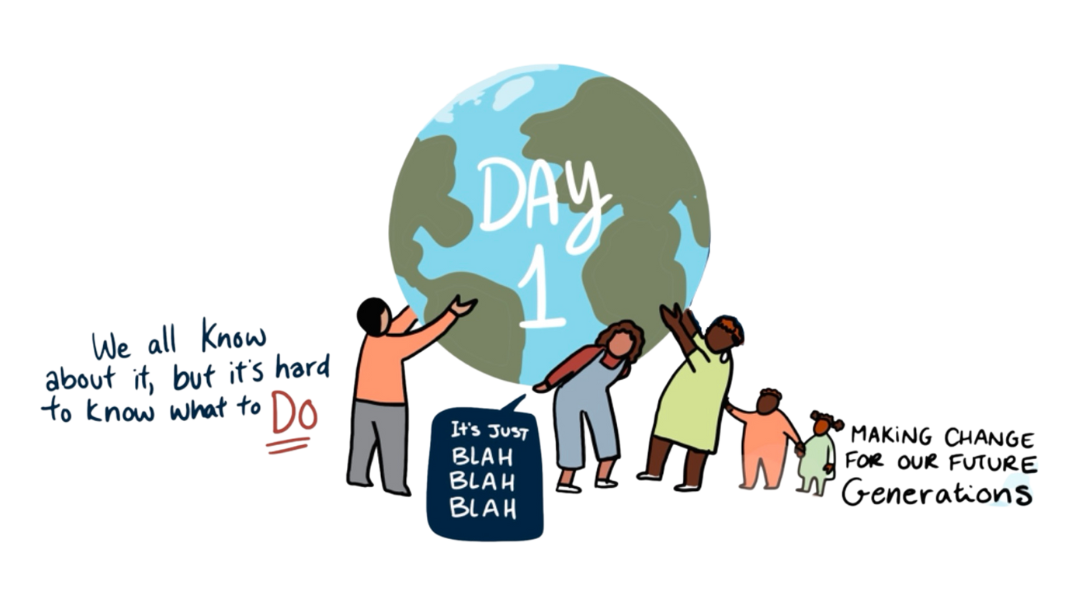
Meet our panelists:
Main themes:
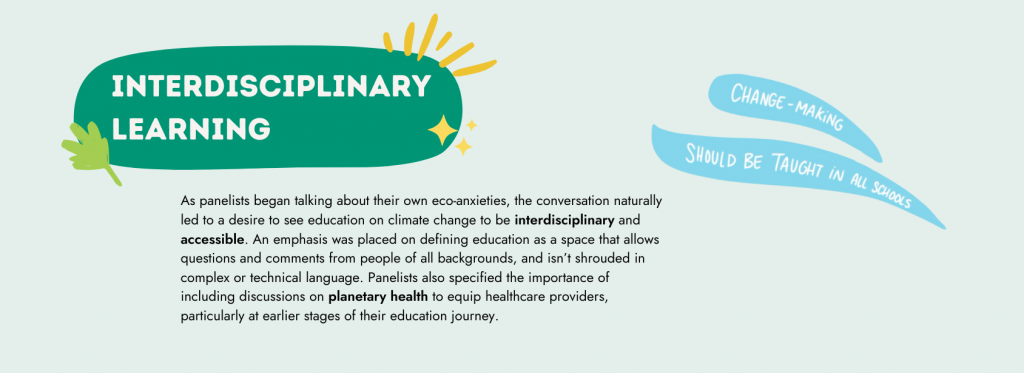

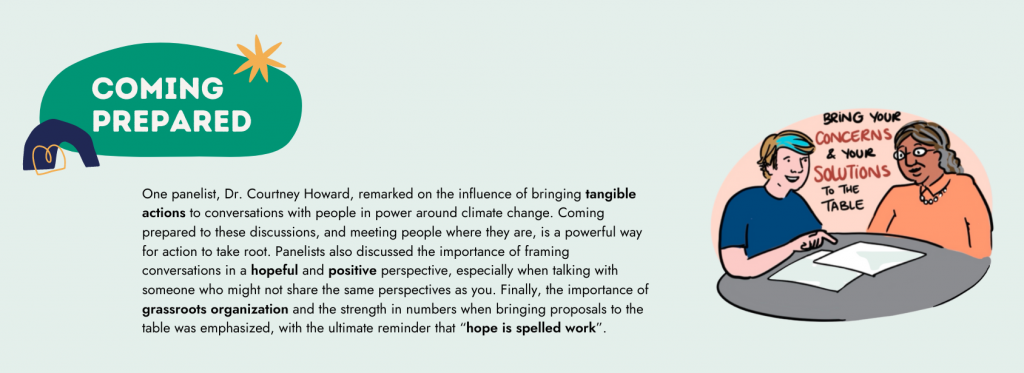
Day 2 – Doing the Work
On Day 2, we began with the question:
“What can we do now to relieve our eco-anxiety?“
Meet our Panelists:
Main themes:

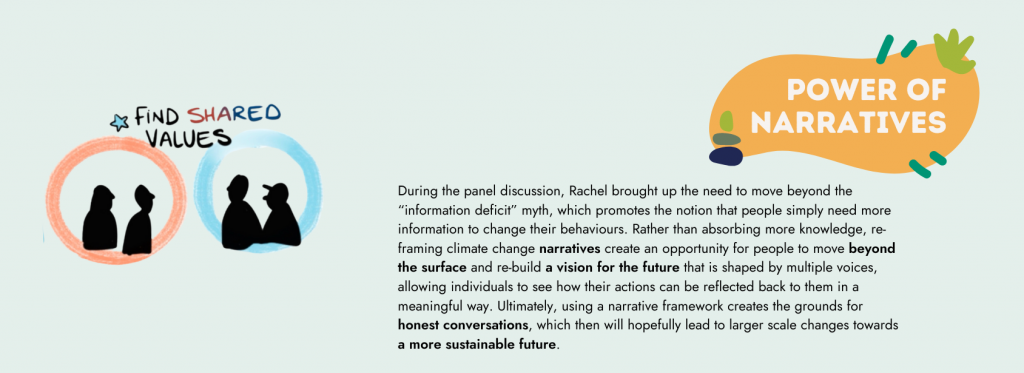
Action Items
In the second half of each day, participants had the opportunity to break into small group discussions to respond and add to the ideas that were shared during the panel. These are some of the key calls to action that came out of those discussions:
Underrepresented Voices
Including a multitude of voices in climate change conversations is important for broadening our view of the issue and bringing more people into the cause. Many participants remarked that bringing in voices from youth, women, and Indigenous leaders on equal grounds is essential for allowing conversations to evolve and push past our current state.
Uniting Under One Cause
Equal Grounds
Conversations around climate change can be divisive and alienating to many. It’s essential to keep an open-mind going into these conversations to equal grounds.
- Recognize the potential political nature of climate change conversations
- Shift from a focus on changing minds, to one of fostering connections and community
Open and Honest Conversations
It will be important to avoid adopting into traditional power imbalances and hierarchies, so that individuals from all backgrounds are comfortable presenting their ideas and opinions in open and honest conversations.
- Create a space for connection
- Emphasize genuineness over image
- Recognize the interdisciplinary nature of climate change by including conversations in different facets of society, beyond environmental discussions (i.e. healthcare, commerce)
Accessible Information
The effects of climate change (i.e., wildfires, floods, extreme weather) are felt more severely in rural communities, and it’s important to make relevant emergency-preparedness education more accessible to appropriately equip those who are the most impacted.
- Create reliable, accessible communication lines
- Many forms of communication
- Communicate emergency-preparedness
- Normalize expressing individual and collective eco-anxiety
Community and Mentorship
Participants emphasized the importance of community in climate change advocacy as a way to help prevent alienation and unite towards a common goal.
Bridging Generations
- Creating opportunities for intergenerational conversations rooted in reciprocal and respectful learning
- Broadening our idea of who a climate activist is
- Recognizing the unique problems that each generation faces (i.e. lack of financial security, health problems)
Diversity in Education
- Integrating climate change into all levels of education (i.e. high school, undergraduate, medical school)
- Taking an interdisciplinary approach to climate education
- Creating space for mistakes and growth
Personal Initiative
A major recurring theme of this symposium is the importance of smaller-scale, grassroots initiatives in furthering the conversation and work that can be done. During the second day, groups collectively built a word cloud of climate actions that they can do in various areas of their own lives as a way of highlighting the importance of small-scale initiatives, particularly at the personal level. Here is a culmination of the various word clouds created using Miro.
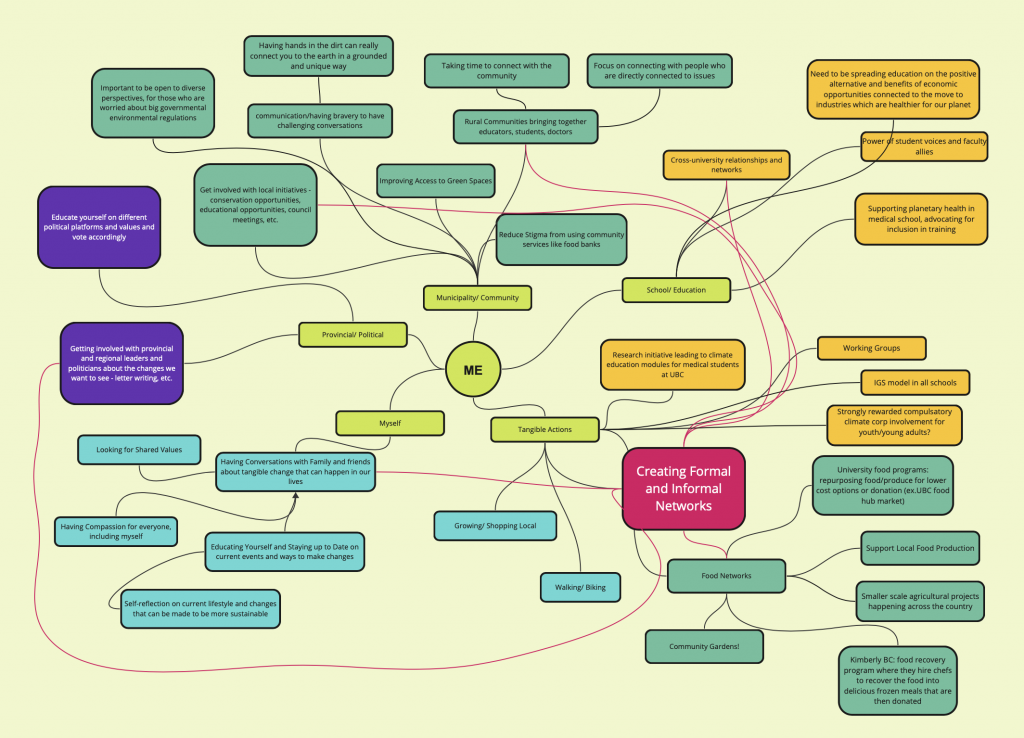
Coming Up at RHSRNbc
Following the success of the Building Resilient Rural Communities: Responding to Climate Change and Ecosystem Disruption learning hub after its launch in March 2023, the team at RHSRNbc is in the process of creating a second volume of the learning hub placing an emphasis on Implementing Climate Action.
This volume will examine current initiatives in rural B.C. that are tackling a climate-related problem to determine what makes these initiatives work and how they can implemented in other places.
RHSRNbc, in collaboration with film industry experts and UBC students, is developing a pilot film called “Cedar Grove” based on the Frontlines narrative included as part of the Building Resilient Rural Communities: Responding to Climate Change and Ecosystem Disruption book/learning hub published in March 2023.
Click here find out more about the film and filmmaker, and to stay tuned for updates regarding screening and publishing.
Didn’t make the symposium? Interested in staying in touch with the people you met there?
Join the RHSRNbc Post-Symposium Working Group, a chance to communicate and collaborate with other climate activists from a variety of grassroots organizations across Canada. You can also check the “Participating Communities” button to see a list of all the organizations that were mentioned or present during the symposium.
Follow Us!

We are grateful to the Pacific Institute for Climate Solutions for their funding and support!
